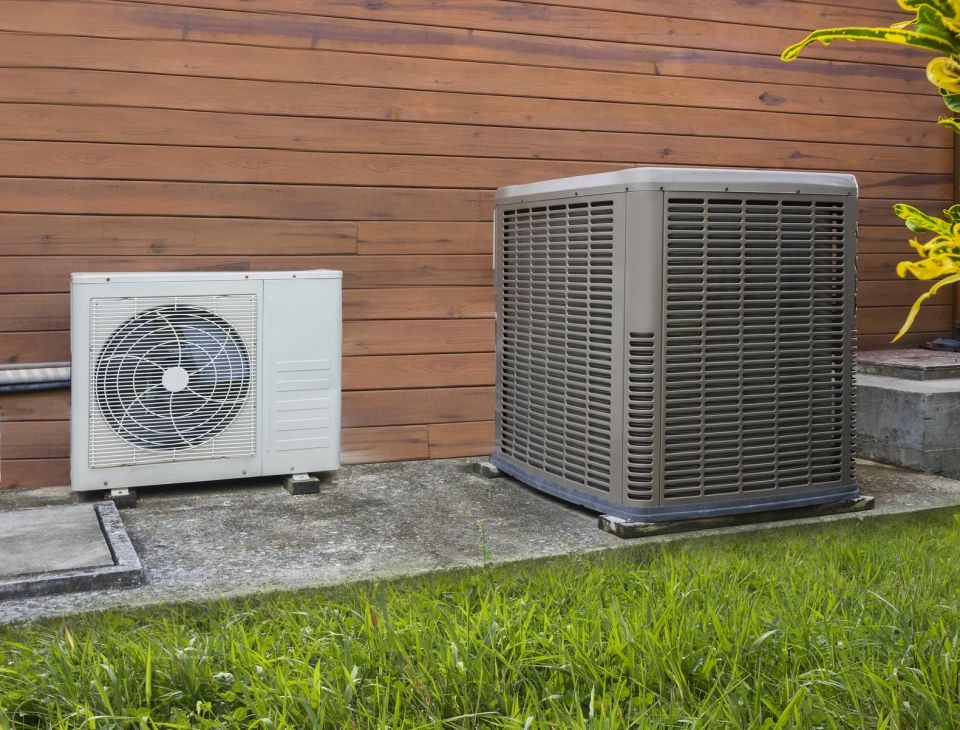When it comes to cooling your home, you’ve likely heard of air conditioners and heat pumps, but do you know the difference? Understanding what’s the difference between a heat pump and an air conditioner is vital when choosing the most energy-efficient HVAC system for your home. Heat pumps are becoming increasingly popular due to their energy-efficient design. Many people are still determining how they differ from air conditioners. This blog post will discuss the differences between air conditioners and heat pumps, enabling you to decide when selecting the best HVAC system suited to your home’s needs. Heat pumps and air conditioners are essential for keeping your home comfortable in the summer, but they work differently. We’ll explore the unique characteristics of each system in depth and look at the advantages and disadvantages of each.
1. Heat pumps use heat exchange to warm and cool a space
Heat pumps use a process called heat exchange to warm and cool a space. This process involves the transfer of heat energy from one place to another. In terms of air conditioning, heat pumps use refrigerant to absorb heat from the air inside the space and transfer it to the outside. This process is reversed in the winter when the heat pump extracts heat from the outside air and transfers it inside. This makes heat pumps an energy-efficient alternative to traditional air conditioning systems, as they use much less energy to warm and cool a space. 
2. Air Conditioners utilize refrigerant to cool a space
Air conditioners are the most commonly used cooling appliance in most households. They use a chemical refrigerant to absorb heat from a space and transfer it outside the home. Air conditioners are the most efficient when used in climates with high humidity and temperatures. The refrigerant travels through a closed-loop system of copper tubing and aluminum fins. The system is pressurized and filled with refrigerant when the air conditioner is turned on. As the refrigerant absorbs heat from the air inside, it becomes vapor and is compressed into a liquid. The liquid refrigerant then passes through an expansion valve and enters the evaporator coil. Here it changes back into a gas and absorbs more heat from the air, cooling the space.
3. Heat Pumps are more energy efficient than air conditioners
Heat pumps are more energy efficient than air conditioners because they don’t use as much energy to cool your home. Heat pumps use a refrigerant to transfer heat from one area to another. At the same time, air conditioners move heat from inside your home to the outdoors. Heat pumps move the heat back and forth, so the same energy is used repeatedly. This means you can use less energy to keep your home cool and comfortable. Also, since heat pumps don’t require any fuel, you can save money on your energy bills.
4. Air Conditioners can operate during colder temperatures than heat pumps
One significant difference between air conditioners and heat pumps is that air conditioners can operate during colder temperatures than heat pumps. This can be especially beneficial for homeowners in more northern climates who need air conditioning during the summer but may need to switch to heating during the winter. Air conditioners can also be used as an effective supplement to a heat pump, providing additional cooling capacity when needed during the summer months.
5. Heat Pumps are more expensive to install initially than air conditioners
Installing a heat pump is more expensive upfront than an air conditioner. This is because heat pumps are larger and more complex than air conditioners and require specialized equipment and installation processes. Additionally, a professional must install heat pumps to ensure they work correctly and efficiently. Although heat pumps are more expensive to install initially, their long-term energy efficiency can make them more cost-effective in the long run.

In conclusion, heat pumps and air conditioners keep your home relaxed and comfortable. Heat pumps operate in two directions to heat and cool your home, whereas air conditioners only cool. Heat pumps are more energy efficient than air conditioners and are ideal for milder climates. They are more expensive to install, but their energy savings can compensate for the additional cost.






